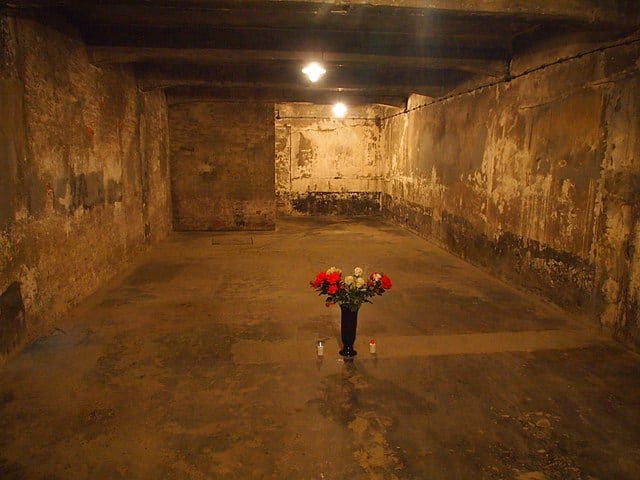
ADVERTISEMENT - CONTINUE READING BELOW
Auschwitz and Belsen: Life Against the Odds
At Auschwitz, Gena and her family were “dehumanized’, as their hair was shaved off and they were issued identical, loose vermin-ridden uniforms. Then they were forced to strip naked and forced into a room and told to wait. “We were trembling. I didn’t know where we were, “explained Gina. “We waited a while, and then water came through the walls. It was wonderful. For many weeks we had had no water on our backs. We were all drinking it.”
However, when Gena came outside, she realized the enormity of what had just happened. “As we came outside, the women there said how wonderful it was to see us. They screamed with happiness. I didn’t understand what they meant. I said ‘What are you shouting about?'” Recalled Gina, “They said ‘Don’t you know? You were in the gas chamber.’ It seemed that on this occasion, fate intervened and the mechanism for pumping the gas failed, earning the prisoners an unexpected reprieve.
During their short stay at Auschwitz, Gena and her mother lost Hela who was injected with petrol as part of Nazi “experiments” and died in the camp hospital. They could not even mourn her. “To cry in Auschwitz could have you shot…. We had to be strong, to block out everything, “said Gena. However, within a few weeks of the gas chamber incident, mother and daughter were on the move again, this time for a brief spell in Buchenwald concentration camp. Finally, as the allies began to advance in February 1945, they were moved for the last time: to Bergen Belsen.

ADVERTISEMENT - CONTINUE READING BELOW
Gena remembered her first impressions of Belsen clearly. “When I arrived in Bergen-Belsen concentration camp, I saw heaps of bodies lying around. Not just one or two but mountains as high as a tree in the garden. “You could not distinguish if they were men or women – bones, skeletons, children’s bodies. You can’t possibly imagine the state of the place; it was horrendous…Wherever we walked, we had to climb over piles of rotting bodies.”
Typhus was rife in the camp, and so Gena was assigned to the hospital to help nurse the sick. It was there that she encountered Anne Frank, whose secret diary would become one of the most touching testaments to the horrors of the Holocaust. “She was delirious, terrible, burning up. I gave her cold water to wash her down,” Gena recalled. “We did not know she was special, but she was a lovely girl. I can still see her lying there with her face, which was so red as she had a breakout. And then she died.” Gena and her mother, however, survived Belsen and where there when the British liberated the camp. “My courage came from my mother,” said Gena. “I was determined to keep her alive, and because of that, I lived.”

